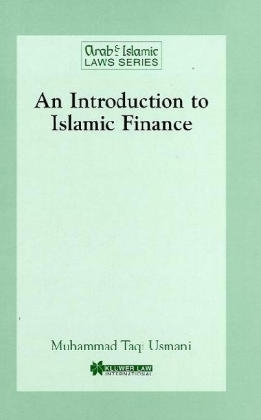
An Introduction to Islamic Finance
Seiten
2001
Kluwer Law International (Verlag)
978-90-411-1619-2 (ISBN)
Kluwer Law International (Verlag)
978-90-411-1619-2 (ISBN)
Although the principles of Shari'ah require financial institutions to be structured on an interest-free basis, this does not mean that they are charitable concerns. This guide to Islamic finance distinguishes between Islamic practices and conventional procedures based on interest.
Although the principles of Shari'ah require banks and financial institutions to be structured on an interest-free basis, this does not mean that such institutions are charitable concerns. As long as a person advancing money expects to share in the profits earned (or losses incurred) by the other party, a stipulated proportion of profit is legitimate. The philosophy is enshrined in the traditional Islamic concepts of musharakah and mudarabah, along with their specialized modern variants murabahah, ijarah, salam, and istisna'. This invaluable guide to Islamic finance clearly delineates the all-important distinctions between Islamic practices and conventional procedures based on interest. Justice Usmani of Pakistan, who chairs several Shari'ah supervisory boards for Islamic banks, clearly explains the various modes of financing used by Islamic banks and non-banking financial institutions, emphasizing the necessary requirements for their acceptability from the Shari'ah standpoint and the correct method for their application. He deals masterfully with practical problems as they arise in the course of his presentation, and offers possible solutions in each instance.
Although the principles of Shari'ah require banks and financial institutions to be structured on an interest-free basis, this does not mean that such institutions are charitable concerns. As long as a person advancing money expects to share in the profits earned (or losses incurred) by the other party, a stipulated proportion of profit is legitimate. The philosophy is enshrined in the traditional Islamic concepts of musharakah and mudarabah, along with their specialized modern variants murabahah, ijarah, salam, and istisna'. This invaluable guide to Islamic finance clearly delineates the all-important distinctions between Islamic practices and conventional procedures based on interest. Justice Usmani of Pakistan, who chairs several Shari'ah supervisory boards for Islamic banks, clearly explains the various modes of financing used by Islamic banks and non-banking financial institutions, emphasizing the necessary requirements for their acceptability from the Shari'ah standpoint and the correct method for their application. He deals masterfully with practical problems as they arise in the course of his presentation, and offers possible solutions in each instance.
| Erscheint lt. Verlag | 1.1.2001 |
|---|---|
| Reihe/Serie | Arab and Islamic Laws Series |
| Verlagsort | Zuidpoolsingel |
| Sprache | englisch |
| Maße | 155 x 235 mm |
| Gewicht | 372 g |
| Einbandart | gebunden |
| Themenwelt | Recht / Steuern ► Allgemeines / Lexika |
| Recht / Steuern ► EU / Internationales Recht | |
| Sozialwissenschaften ► Soziologie ► Spezielle Soziologien | |
| Wirtschaft ► Betriebswirtschaft / Management ► Finanzierung | |
| Betriebswirtschaft / Management ► Spezielle Betriebswirtschaftslehre ► Bankbetriebslehre | |
| ISBN-10 | 90-411-1619-2 / 9041116192 |
| ISBN-13 | 978-90-411-1619-2 / 9789041116192 |
| Zustand | Neuware |
| Haben Sie eine Frage zum Produkt? |
Mehr entdecken
aus dem Bereich
aus dem Bereich
warum unser Geld stirbt und wie Sie davon profitieren
Buch | Hardcover (2024)
FinanzBuch (Verlag)
CHF 41,95
denken und handeln wie ein professioneller Trader
Buch | Softcover (2023)
Vahlen, Franz (Verlag)
CHF 51,65


